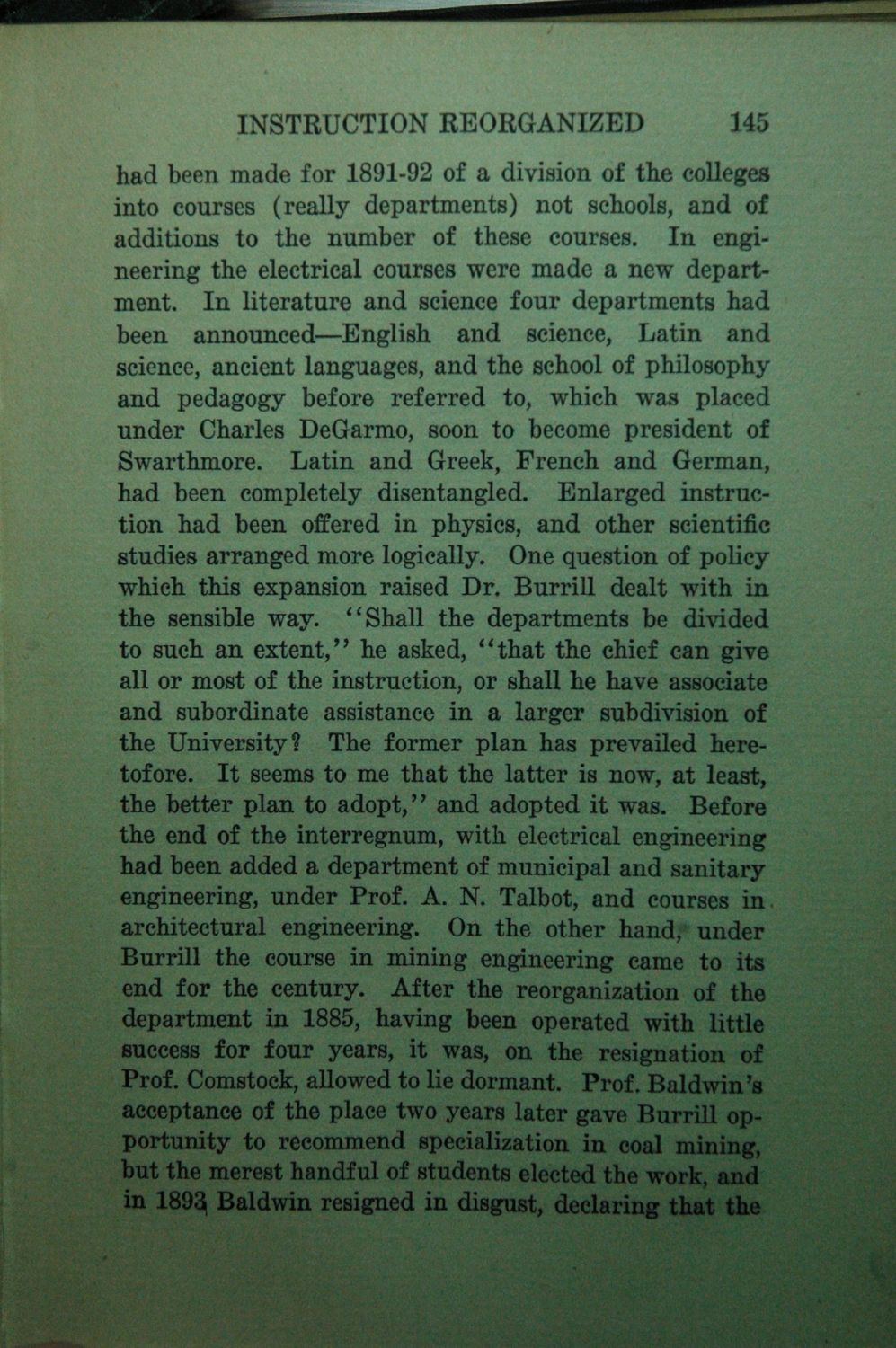| |
| |
Caption: Book - History of the University (Nevins)
This is a reduced-resolution page image for fast online browsing.

EXTRACTED TEXT FROM PAGE:
INSTRUCTION REORGANIZED 145 had been made for 1891-92 of a division of the colleges into courses (really departments) not schools, and of additions to the number of these courses. In engineering the electrical courses were made a new department. In literature and science four departments had been announced—English and science, Latin and science, ancient languages, and the school of philosophy and pedagogy before referred to, which was placed under Charles DeGarmo, soon to become president of Swarthmore. Latin and Greek, French and German, had been completely disentangled. Enlarged instruction had been offered in physics, and other scientific studies arranged more logically. One question of policy which this expansion raised Dr. BurriU dealt with in the sensible way. "Shall the departments be divided to such an extent,'\ he asked, "that the chief can give all or most of the instruction, or shall he have associate and subordinate assistance in a larger subdivision of the University? The former plan has prevailed heretofore. It seems to me that the latter is now, at least, the better plan to adopt," and adopted it was. Before the end of the interregnum, with electrical engineering had been added a department of municipal and sanitary engineering, under Prof. A. N. Talbot, and courses in architectural engineering. On the other hand,* under Burrill the course in mining engineering came to its end for the century. After the reorganization of the department in 1885, having been operated with little success for four years, it was, on the resignation of Prof. Comstock, allowed to lie dormant. Prof. Baldwin's acceptance of the place two years later gave Burrill opportunity to recommend specialization in coal mining, but the merest handful of students elected 111 work,$»nd in 189^ Baldwin resigned in disgust, declaring that the
| |